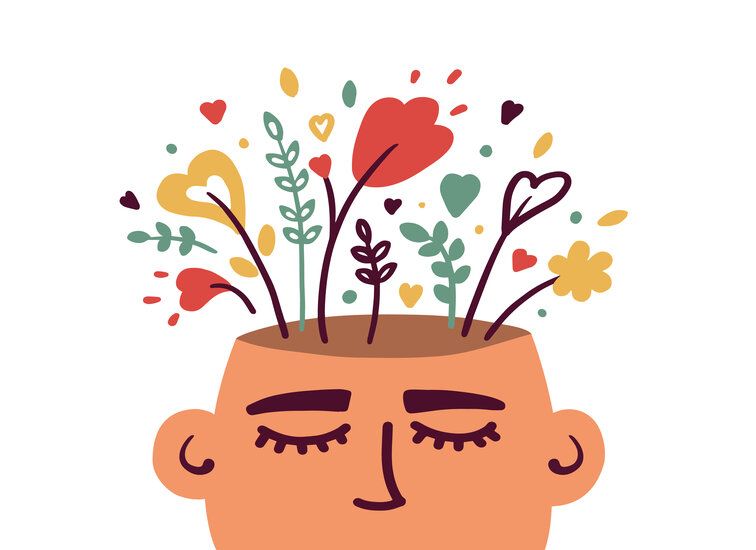Social lifetime experiences have long-lasting effects on mental and brain health
Posted on: 12 September 2025
Lifetime significant experiences, in particular the social ones, are the fabric of our identity. But what about their impact in our health?
Hardships of childhood, access to education quality and social networks, exposure to violence, and many other social domains may slowly accumulate over time and decades later may shape how the brain growth, connects, and copes. In a new groundbreaking work published in Nature Communications, researchers found that an adverse social exposome, defined as the cumulative exposure to factors such as low education, adverse childhood experiences, food insecurity, financial stress and assets, low access to healthcare, and traumatic events, is linked to poorer cognition and mental health, reduced functional ability, and alterations in brain structure and function. These effects have long-lasting impact not only in healthy aging but also in people living with dementia. This work suggests that healthy ageing dementia prevention should begin in childhood.
The study was conducted by an international team of researchers from the Global Brain Health Institute (GBHI) at Trinity College Dublin, the Multipartner Consortium to expand dementia research in Latin America (ReDLat), and the Latin American Brain Health Institute (BrainLat).

The social exposome and brain health
The researchers first created and validated an assessment of social exposome assessing 319 dimensions for education, food insecurity, financial status, assets, healthcare access, childhood labor, subjective and objective socioeconomic status, childhood experiences, traumatic events, and relationships. These scores were evaluated 2211 individuals (controls, Alzheimer’s disease, and frontotemporal lobar degeneration) from six Latin American countries. This region was chosen given the larger influence of social exposome. Structural inequality, educational disparities, and social determinants of health are impacting Latin Americans’ health.
In brief, the more adverse the social exposome, the larger the cognitive, functional, mental and brain impairments. Diverse social and environmental factors at different stages of life were associated with multiple dimensions of brain health. Adverse exposomes associated with poorer cognition in healthy ageing. In dementia, more complex exposomes (food insecurity, financial status, socioeconomic status, and access to healthcare) correlated with lower cognitive and functional performance, higher mental health symptoms, and brain structural and connectivity. More importantly, the accumulation of these exposures across the lifespan, rather than the impact of individual components assessed in isolation, showed the strongest associations. The variations in participants’ country of origin, demographic and dementia-related factors, image acquisition methods, or signal quality did not account for the results. Together, findings highlight how compounded social adversity becomes biologically embedded in brain structure and function. The tailored modeling of social exposome capture precise brain health outcomes of aging and dementia.
Why prevention must begin early: implications for research and policy
Dementia prevention should not only focus on a midlife action such as controlling hypertension or diabetes. It should begin in childhood, when the foundations of brain development are laid. Reducing food insecurity, improving education quality, and ensuring reliable access to healthcare and supportive environments in early and midlife can build brain health capital that pays off decades later. 56% of dementia cases in multiple regions like Latin America could be attributable to modifiable risk factors such as obesity, physical inactivity, and depression, compared with 46% globally. These figures are closely tied to dimensions of the social exposome and illustrate how accumulated adversity translates into higher dementia vulnerability in the region.
Joaquín Migeot, neuroscientist, Atlantic Fellow at the Global Brain Health Institute (GBHI) at Trinity, first author, said:
“The interaction between modifiable risk factors and the social exposome offers a path toward developing precision dementia prevention agendas tailored to each individual’s social exposome and risk profile.”
For Agustin Ibanez, Professor in Brain Health at the Global Brain Health Institute at Trinity, and School of Medicine, Trinity, and Director of the Latin American Brain health Institute (BrainLat), Universidad Adolfo ibanez, lead and corresponding author, this study evidenced
“a systematic association of the multidimensional social lifespan experiences on brain health outcomes. These results call for the development of tailored models incorporating the impact of lifespan social environments in the biological embedding of aging and dementia.”
About the study
Moving beyond single factor approaches such as years of education or income, this study integrates multidimensional lifespan experiences into a social exposome index that includes education quantity and quality, food insecurity, financial stress and assets, subjective and objective socioeconomic status, access to healthcare, childhood labor and experiences, traumatic events, and relationships. Analyzing more than 2,200 individuals across six Latin American countries, including cognitively healthy adults and people living with Alzheimer’s disease or frontotemporal dementia, a higher exposome adversity tracks with lower cognitive and functional ability, poorer mental health, alongside structural and functional alterations in dementia sensitive networks.
READ: You can read the paper in the Nature Communications journal at this link: https://doi.org/10.1038/s41467-025-63277-6.
Media Contact:
Ciara O’Shea | Media Relations | coshea9@tcd.ie | +353 1 896 4204
